Writing With a Broken Tusk
Writing With a Broken Tusk began in 2006 as a blog about overlapping geographies, personal and real-world, and writing books for children. The blog name refers to the mythical pact made between the poet Vyaasa and the Hindu elephant headed god Ganesha who was his scribe during the composition of the Mahabharata. It also refers to my second published book, edited by the generous and brilliant Diantha Thorpe of Linnet Books/The Shoe String Press, published in 1996, acquired and republished by August House and still miraculously in print.
Since March 2024, Jen Breach (writer, VCFA graduate, and former student) has helped me manage guest posts and Process Talk pieces on this blog. They have lined up and conducted author/illustrator interviews and invited and coordinated guest posts. That support has helped me get through weeks when I’ve been in edit-copyedit-proofing mode, and it’s also introduced me to writers and books I might not have found otherwise. Our overlapping interests have led to posts for which I might not have had the time or attention-span. It’s the beauty of shared circles.
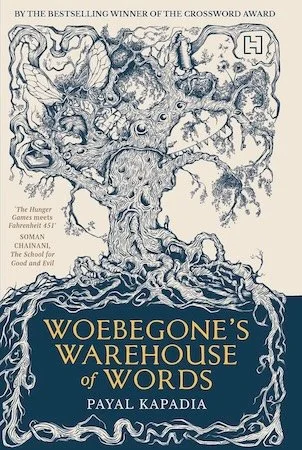
Process Talk: Payal Kapadia on Woebegone’s Warehouse of Words
“Where nothing can be named, nothing is.”
In the tradition of novels that play with words (The Phantom Tollbooth by Norton Juster, The Wonderful O by James Thurber, The Neverending Story by Michael Ende) Woebegone’s Warehouse of Words by Payal Kapadia hit me like a—well, like a box of words falling off a warehouse crane. It felt significant to be reading it now in the middle of a time when words are often weaponized and taken away from people in the real world, where words exercise power and judgments are frequently made by the powerful about who ought to use them and when.
Here’s my conversation with my colleague and friend, Payal Kapadia.
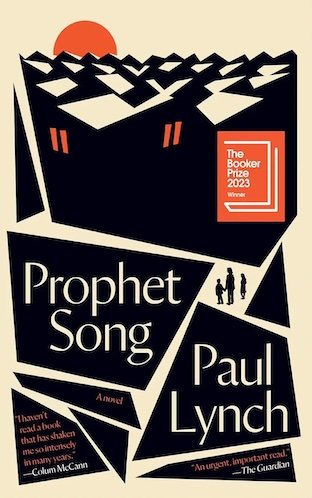
Voice and Empathy in Prophet Song by Paul Lynch
Paul Lynch thought his novel would never be published. He thought the book would destroy his career. It won the 2023 Booker. He also sees it as a personal rather than a political book. Well, okay.
Prophet Song is the story of Eilish, a biologist and mother of four whose life in a suburb of Dublin is upended by the secret police showing up at her home looking for her husband Larry, who is a teacher’s union leader. Larry disappears and never returns. The backdrop is a country sliding into totalitarianism and civil war, a setting that feels uneasily like the present time in the United States.
The beauty of this book lies in how its story unfolds in the small frame of one woman’s experience, told by a narrator who is at once painfully close to her and yet aware of dangers she cannot yet sense.
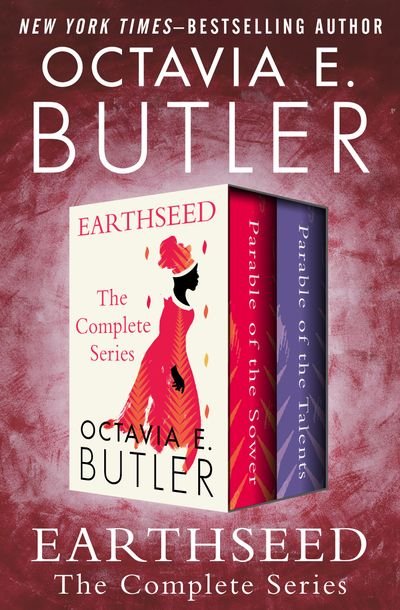
Alone Together: The Magic of Shared Reading—Part 1
I joined a book discussion last month through the Democratic Party’s Global Women’s Caucus. The book we all read is an iconic text—Parable of the Sower by Octavia Butler, which I’ve focused on earlier in this blog. The first of the trilogy, it was published in 1993, and behold! The years that it’s set in have become our present.
“The wall before me is burning. Fire has sprung from nowhere, has eaten in through the wall, has begun to reach toward me, reach for me.”
Fire dreams feel like the reality of our time. (For more on a fictional depiction of fire in our pyrocene age, see Caroline Starr Rose’s reflections on her novel, The Burning Season.) But fire is just one of the elements that make Butler’s work feel astonishingly prescient.
One thread we discussed was the struggle between the comforts and costs of living in the modern industrial world. The protagonist, Lauren Olamina, dreams of the stars:
“The Destiny of Earthseed is to take root among the stars,” I said. “That's the ultimate Earthseed aim, and the ultimate human change short of death. It's a destiny we’d better pursue if we hope to be anything other than smooth-skinned dinosaurs—here today, gone tomorrow, our bones mixed with the bones and ashes of our cities, and so what?”
In reality, look how that dream, which feels so boldly innocent in Butler’s telling, has now been coopted by shamelessly rich men toward their own selfish ends.
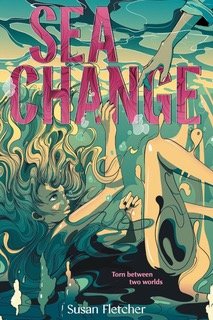
Process Talk: Susan Fletcher on Sea Change
Susan Fletcher is no stranger to my bookshelf, to my circle of writer friends and colleagues, or, for that matter, to this blog. I’ve been enchanted by her Journey of the Pale Bear, by the luminous setting and the endearing band of waifs in Falcon in the Glass, and by the spirited character of Marjan in Shadow Spinner. Her Dragon Chronicles (Dragon’s Milk, Flight of the Dragon Kyn, Sign of the Dove, and Ancient, Strange, and Lovely) play out over a timespan that stretches from a Welsh-inspired storyscape all the way to the thump of an egg and the life of a girl in Oregon, in a polluted present time.
Now Susan brings us Sea Change, a reworking of the story of The Little Mermaid. It’s a YA science fiction tale of a gill-breathing girl contending with family and community and love on a climate-impacted Texas coast.
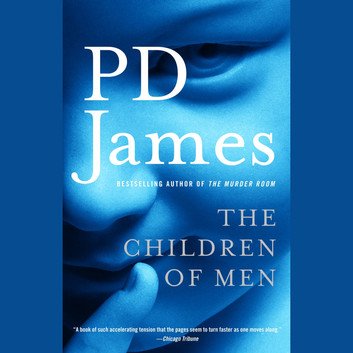
Really, America? The Curious Appeal of Dystopian Fiction
With the election of 47 as United States President in the rear-view mirror and the reality of a clownish, arbitrary, self-obsessed administration playing out in the present moment, you wouldn’t think there’d be any comfort to be gleaned from dystopian fiction. Yet what did I find myself downloading in audiobook format? Children of Men by P.D. James. It’s set in an England that is rather quaintly dated 2021, which must have seemed far away in 1992 but now feels counterintuitive. But honestly, that was the only point at which I had to work to suspend disbelief.
